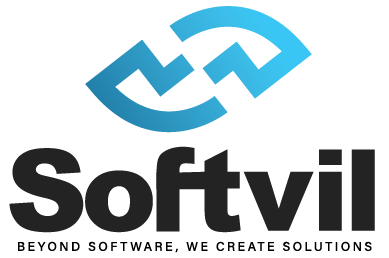Software development is a critical aspect of businesses today, and the decision between in-house development and outsourcing can have a significant impact. In-house development, which leverages internal resources and expertise, and outsourcing, which involves hiring external agencies or teams for software development services, are two common approaches. This article aims to delve into the pros and cons of both in-house software development and software outsourcing, providing a comprehensive analysis to help businesses make an informed decision on which approach to choose for their software development needs.
Understanding In-House Development

In-house development refers to building and managing software development teams within software companies. It involves utilizing internal resources and expertise to handle software projects exclusively for the company.
Building and Managing an Internal Team
Companies have the autonomy to build a team from scratch or leverage existing employees with the necessary skills. The process involves hiring and managing the workforce, ensuring they possess the required expertise for the projects at hand.
Advantages of In-House Development
Complete Control and Alignment with Company Vision:
- Companies have full control over the development process, allowing them to align it closely with their vision and goals.
- The team members are well-versed in the company’s culture, values, and objectives, resulting in better alignment.
Efficient Communication and Collaboration:
- In-house teams facilitate seamless and prompt communication among team members.
- Immediate feedback, real-time updates, and quick decision-making foster efficient collaboration within the team.
Immediate and Dedicated Support:
- In-house teams provide immediate support when issues arise during the development process.
- The team’s focus is solely on the company’s projects, ensuring dedicated support and swift problem-solving.
Ability to Handpick the Team and Foster Company Culture:
- Companies have the freedom to handpick team members with specific skills and expertise.
- This allows for the creation of a cohesive and aligned team that embodies the company’s culture and values.
Exploring Software Development Outsourcing

Outsourcing software development involves entrusting development tasks to external agencies or teams. This approach allows companies to leverage the expertise and services of specialized software outsourcing companies.
Selecting the Right Outsourcing Partner
When outsourcing software development, selecting the right partner is crucial. Companies should consider factors such as the partner’s experience, reputation, portfolio, and ability to meet project requirements.
- Cost Savings and Access to Global Talent Pool: Outsourcing software development often leads to cost savings as companies can leverage talent from regions with lower labor costs. Additionally, outsourcing provides access to a global talent pool, enabling companies to tap into the diverse skill sets and expertise of remote software developers.
- Scalability and Faster Turnaround Times:Outsourcing offers scalability, allowing companies to ramp up or downsize development teams according to project requirements. Moreover, outsourcing partners have established infrastructures and resources, resulting in faster turnaround times for project completion.
- Expertise in Niche Technologies: Outsourcing partners often specialize in niche technologies or industry-specific solutions. This expertise allows companies to access specialized knowledge and benefit from innovative approaches, resulting in higher-quality software development.
- Focus on Core Business Activities: By outsourcing software development, companies can free up their internal resources and focus on core business activities. This allows teams to concentrate on strategic initiatives, product innovation, and customer satisfaction while leaving the development tasks to dedicated outsourcing partners.
What Factor should be Considered?

When deciding between in-house development and outsourcing software development, several factors should be taken into account. By carefully considering factors such as project requirements, budget, control, company culture, security, and hybrid approaches, businesses can make a well-informed decision regarding the most suitable approach for their software development needs. This ensures alignment with strategic goals, efficient resource allocation, and successful project outcomes.
- Project Requirements and Complexity: Assess the specific requirements and complexity of the project. Determine if it requires specialized expertise or if it can be effectively handled by an in-house team.
- Budget and Cost Considerations: Evaluate the budget available for the project. Compare the costs associated with in-house development, including salaries, training, and infrastructure, with the costs of outsourcing.
- Control and Communication Needs: Consider the level of control required over the development process. In-house development offers greater control and direct communication, while outsourcing may involve some level of delegation and communication with external teams.
- Company Culture and Strategic Goals: Evaluate the compatibility between the company’s culture and the development approach. Consider how in-house development or outsourcing aligns with the strategic goals and long-term vision of the company.
- Security and Data Protection: Assess the sensitivity of the project and the need for security measures. Evaluate the data protection protocols and measures implemented by outsourcing partners to ensure the safety of confidential information.
- Hybrid Approaches: Staff Augmentation and Mixed Models: Explore hybrid approaches that combine the advantages of both in-house development and outsourcing. Consider options such as staff augmentation, where external resources are temporarily integrated with the internal team, or mixed models that leverage both in-house and outsourced resources for different project components.
How to Make a Decision?

By evaluating the pros and cons, aligning with organizational needs and goals, considering project scope and long-term impact, assessing resource availability and expertise, and finding the right balance through customized solutions and an iterative approach, businesses can make a well-informed decision. This ensures efficient resource allocation, maximizes project success, and helps achieve strategic objectives effectively.
When choosing between in-house development and outsourcing for software development, consider the following factors to make an informed decision.
- Evaluating the Pros and Cons: Carefully assess the pros and cons of both approaches, considering factors such as control, communication, cost, scalability, expertise, and focus on core activities.
- Aligning with Organizational Needs and Goals: Evaluate how each approach aligns with the specific needs, goals, and priorities of your organization. Consider factors like strategic focus, core competencies, and long-term business objectives.
- Considering Project Scope and Long-Term Impact: Analyze the scope and complexity of the project, as well as its potential long-term impact on the organization. Determine if in-house development or software outsourcing is better suited to handle the project requirements effectively.
- Assessing Resource Availability and Expertise: Evaluate the availability of internal resources and their expertise in the required technologies. Consider if your organization has the necessary skills and capacity to handle the project in-house or if external expertise is required.
- Finding the Right Balance: Customized Solutions and Iterative Approach: Explore the possibility of a customized approach that combines elements of both in-house development and outsourcing. Consider utilizing staff augmentation or adopting an iterative development approach to balance resources, expertise, and project requirements.
Conclusion
In-house development and software outsourcing are two viable options for software development, each with its own advantages and considerations. Choosing between them requires a careful evaluation of project requirements, budget constraints, control needs, company culture fit, and security concerns. By considering these factors and aligning them with organizational goals, businesses can make an informed decision on whether in-house development or outsourcing is the right approach for their software development projects.

